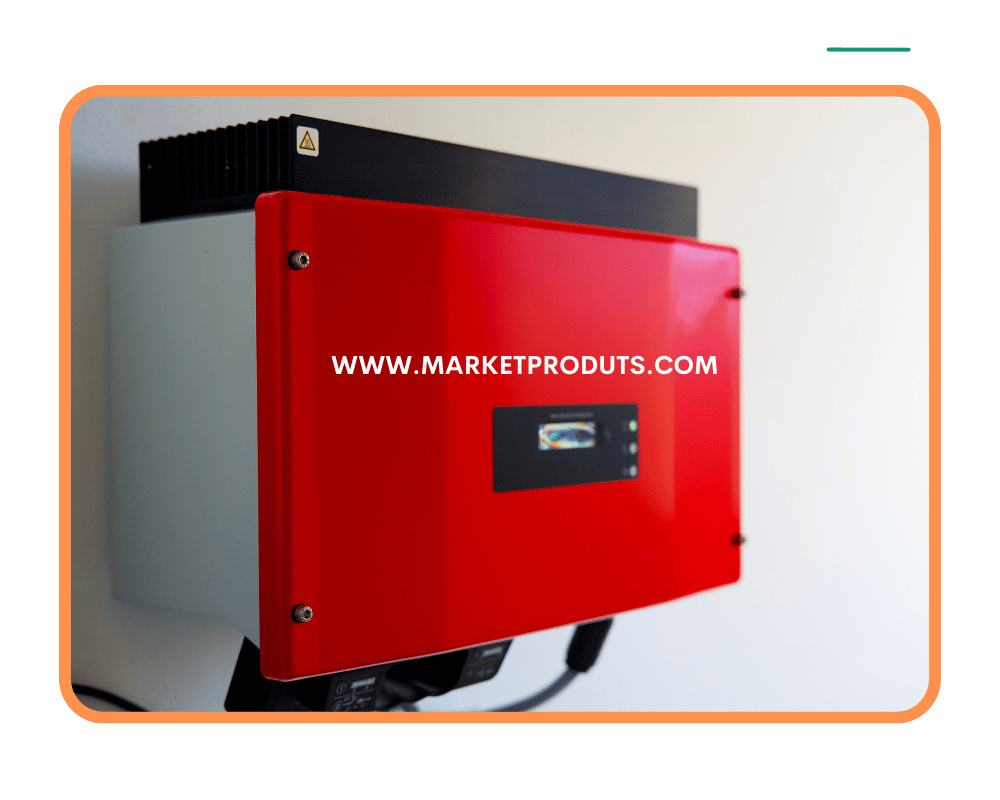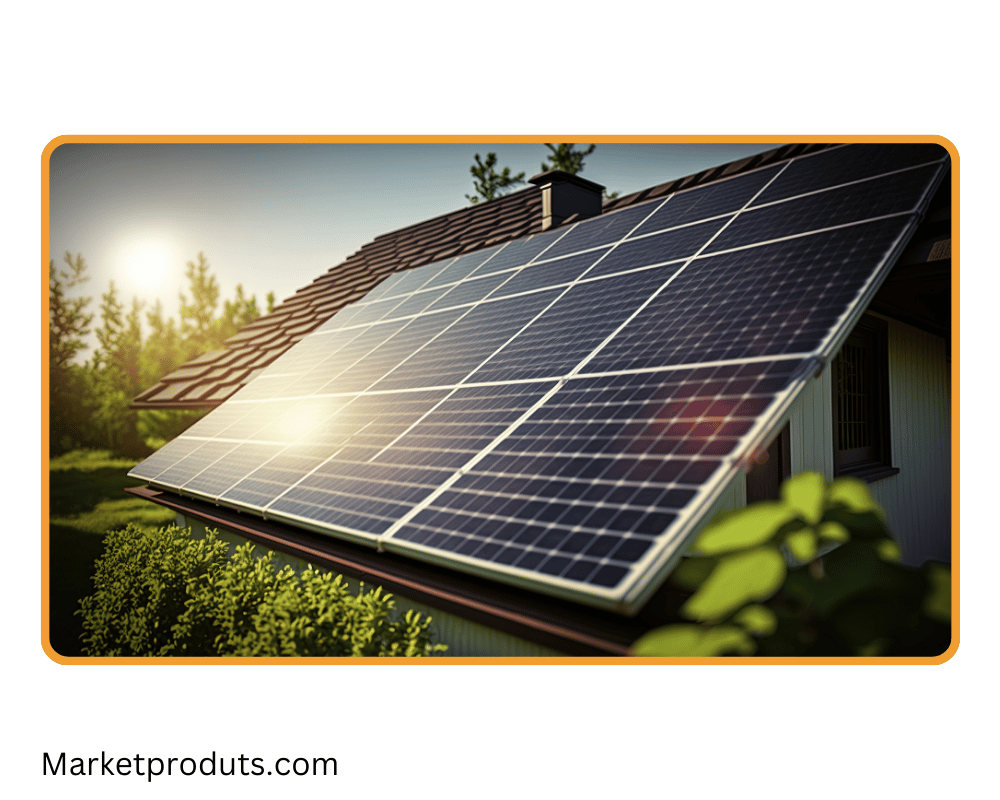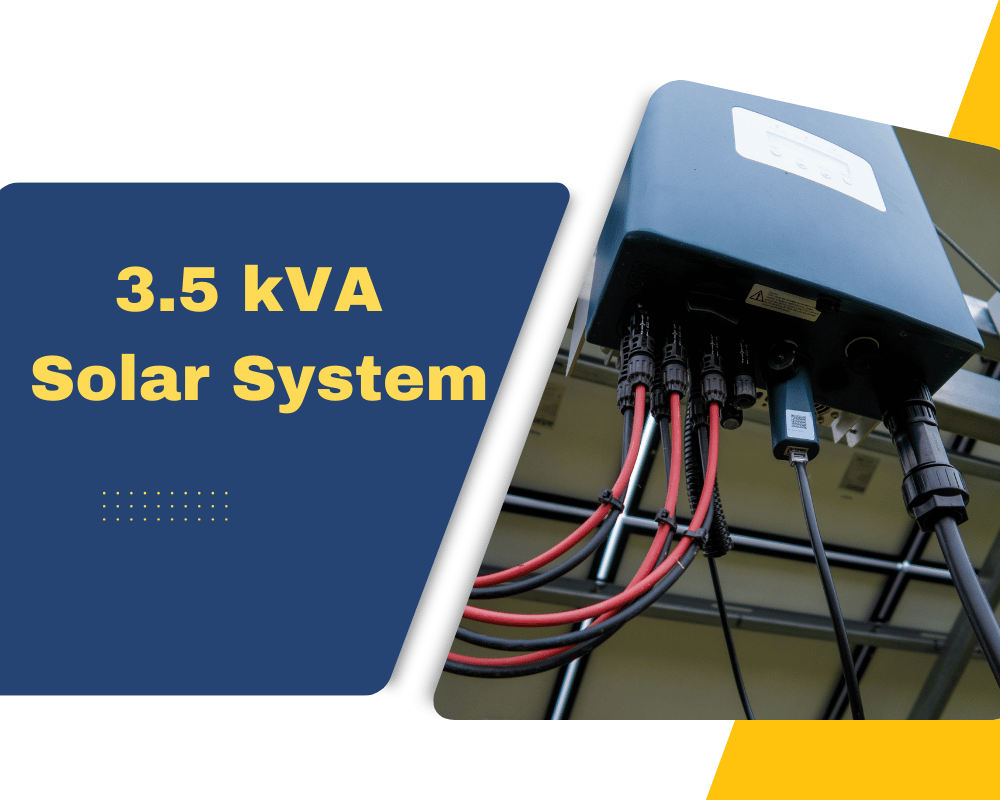In recent years, there has been a significant rise in the adoption of solar power systems in Nigeria, driven by the need for a reliable power supply amidst frequent power outages and the high cost of running diesel or petrol generators. Solar systems provide a cleaner, more sustainable alternative to traditional energy sources. One of the most popular options for homes and small businesses is the 3.5 kVA solar system. But, how much does a 3.5 kVA solar system cost in Nigeria? This article breaks down the components, pricing, and factors influencing the cost of a 3.5 kVA solar system in Nigeria.
Read more: 5 Process of solar installation and process
What is a 3.5 kVA Solar System?
A 3.5 kVA solar system is a medium-sized solar setup designed to generate up to 3.5 kilovolt-amperes (kVA) of power. This type of system is suitable for powering household appliances such as lights, fans, refrigerators, televisions, and some low-power kitchen appliances. It is also ideal for small offices or businesses with relatively low energy demands. The system typically comprises solar panels, an inverter, batteries, and other accessories like charge controllers and mounting kits.
Components of a 3.5 kVA Solar System

Understanding the cost of a 3.5 kVA solar system requires a breakdown of its components:
- Solar Panels: These are the primary components that convert sunlight into electricity. For a 3.5 kVA system, you will typically need around 8 to 12 solar panels, each rated at 300 to 400 watts, depending on their efficiency.
- Inverter: The inverter is responsible for converting the direct current (DC) generated by the solar panels into alternating current (AC), which is what most household appliances use. A 3.5 kVA inverter is required to match the system’s capacity.
- Batteries: Batteries store the energy generated by the solar panels for use when the sun is not shining, such as during the night or cloudy days. The capacity and number of batteries depend on the intended usage, with many setups requiring between 200Ah to 400Ah battery banks.
- Charge Controller: This device regulates the voltage and current coming from the solar panels to the batteries, preventing overcharging and prolonging battery life.
- Mounting Kits and Accessories: These include the structures used to mount the solar panels on rooftops or other surfaces, as well as wiring, connectors, and other accessories necessary for installation.
How Much is a 3.5 kVA Solar System in Nigeria?
The cost of a 3.5 kVA solar system in Nigeria can vary widely depending on several factors, such as the quality of components, brand, installation costs, and location. On average, the price of a complete 3.5 kVA solar system in Nigeria ranges between ₦1,200,000 and ₦2,500,000.
Breakdown of Costs for a 3.5 kVA Solar System
- Solar Panels: The cost of solar panels can range from ₦60,000 to ₦150,000 per panel, depending on the brand, efficiency, and warranty. For a 3.5 kVA system requiring 8 panels, this translates to ₦480,000 to ₦1,200,000.
- Inverter: A 3.5 kVA inverter generally costs between ₦150,000 and ₦300,000. Prices vary based on the brand, features, and technology (e.g., pure sine wave or modified sine wave).
- Batteries: Depending on the storage capacity required, the cost of batteries for a 3.5 kVA solar system can range from ₦400,000 to ₦800,000. High-quality deep cycle batteries like AGM or Lithium-ion are more expensive but offer better performance and longer life spans.
- Charge Controller: A suitable charge controller for this setup would cost around ₦30,000 to ₦70,000.
- Mounting Kits and Accessories: The cost for mounting kits, cables, and other accessories can range from ₦50,000 to ₦150,000.
- Installation Costs: Professional installation services can add another ₦100,000 to ₦300,000 to the overall cost. This is essential to ensure the system is properly set up for optimal performance and safety.
Factors Influencing the Cost of a 3.5 kVA Solar System in Nigeria
Several factors can influence the total cost of a 3.5 kVA solar system in Nigeria:
- Quality of Components: Higher-quality components, such as premium solar panels and inverters, come with a higher price tag but offer better efficiency, durability, and longer warranties.
- Brand Reputation: Established brands with a good reputation often charge more for their products due to perceived reliability and customer service.
- Installation Complexity: The cost of installation can vary based on the complexity of the site, such as the type of roof, the need for scaffolding, or any additional electrical work required.
- Location: Prices may vary depending on the location within Nigeria. For instance, costs may be higher in major cities like Lagos, Abuja, or Port Harcourt compared to smaller towns.
- Exchange Rate Fluctuations: Since most solar components are imported, fluctuations in the exchange rate between the Naira and foreign currencies can impact prices.
Advantages of Installing a 3.5 kVA Solar System in Nigeria
Investing in a 3.5 kVA solar system in Nigeria comes with numerous benefits:
- Reliability: Solar power provides a reliable alternative to the unstable national grid, ensuring consistent electricity supply.
- Cost Savings: While the initial investment may be high, a solar system can significantly reduce or eliminate electricity bills and the cost of running generators.
- Environmental Benefits: Solar energy is clean and renewable, reducing the carbon footprint and contributing to a healthier environment.
- Low Maintenance: Solar systems require minimal maintenance once installed, mainly limited to cleaning the panels and occasional checks on the inverter and batteries.
Choosing the Right 3.5 kVA Solar System for Your Needs

When considering a 3.5 kVA solar system in Nigeria, it is essential to choose the right system tailored to your specific energy needs and budget. Here are some tips:
- Assess Your Energy Needs: Determine your daily energy consumption to understand what the 3.5 kVA system can comfortably power. This includes adding up the wattage of all appliances you intend to run on the system.
- Consider the Battery Capacity: If you need energy storage for use at night or during cloudy days, ensure the battery capacity is adequate for your needs. Lithium-ion batteries, though more expensive, provide better efficiency and longevity compared to lead-acid batteries.
- Opt for Quality Components: Invest in high-quality components from reputable brands. While cheaper options may seem appealing, they can result in higher maintenance costs and a shorter lifespan.
- Hire Professional Installers: Proper installation is crucial for the optimal performance of a solar system. Ensure that you hire experienced and certified professionals to handle the installation.
Is a 3.5 kVA Solar System Worth the Investment?
Given the frequent power outages and the rising cost of fossil fuels in Nigeria, investing in a 3.5 kVA solar system is becoming an increasingly attractive option. While the upfront cost may seem high, the long-term benefits of reduced electricity bills, lower generator running costs, and a reliable power supply make it a worthwhile investment.
Conclusion.
In conclusion, the cost of a 3.5 kVA solar system in Nigeria ranges from ₦1,200,000 to ₦2,500,000, depending on the quality of components, installation costs, and other factors. For Nigerian households and small businesses looking for a reliable, cost-effective, and environmentally friendly power solution, a 3.5 kVA solar system is a solid investment. As with any significant purchase, it’s essential to research and consult with professionals to ensure you get the best value for your money.





